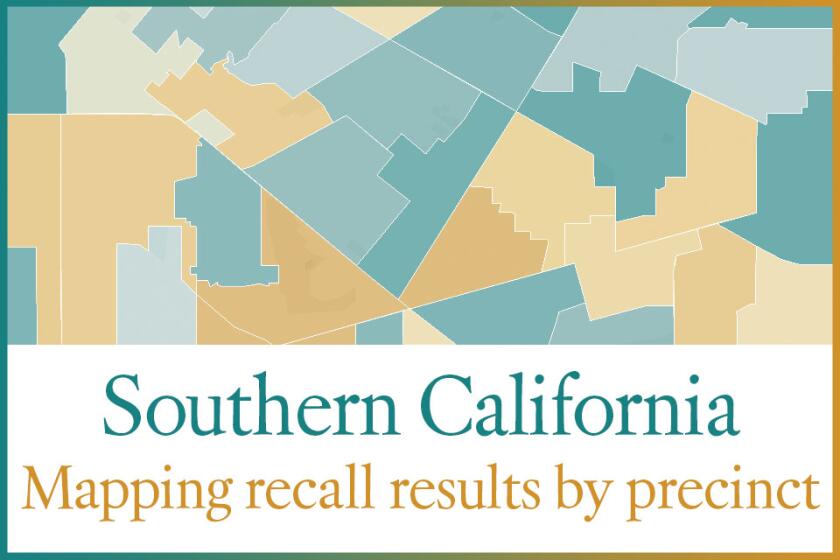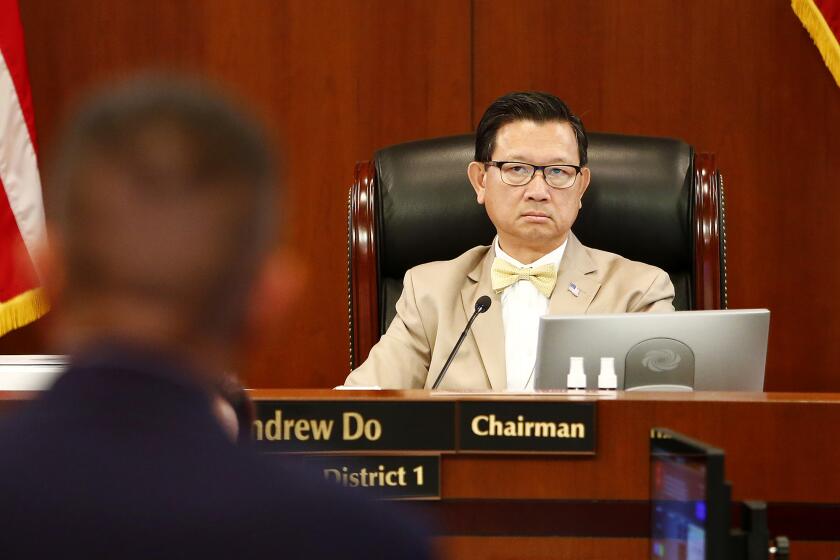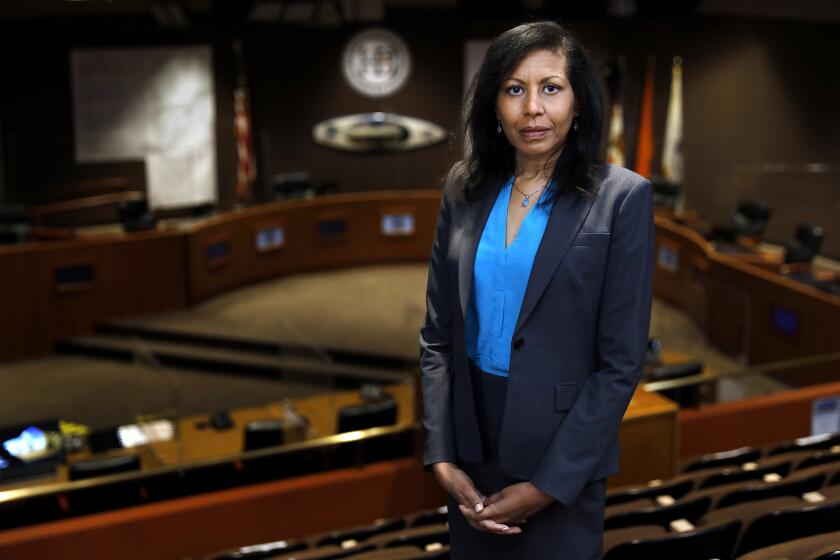Orange County is still ‘mother ship’ for GOP money, but shift from red to purple accelerates
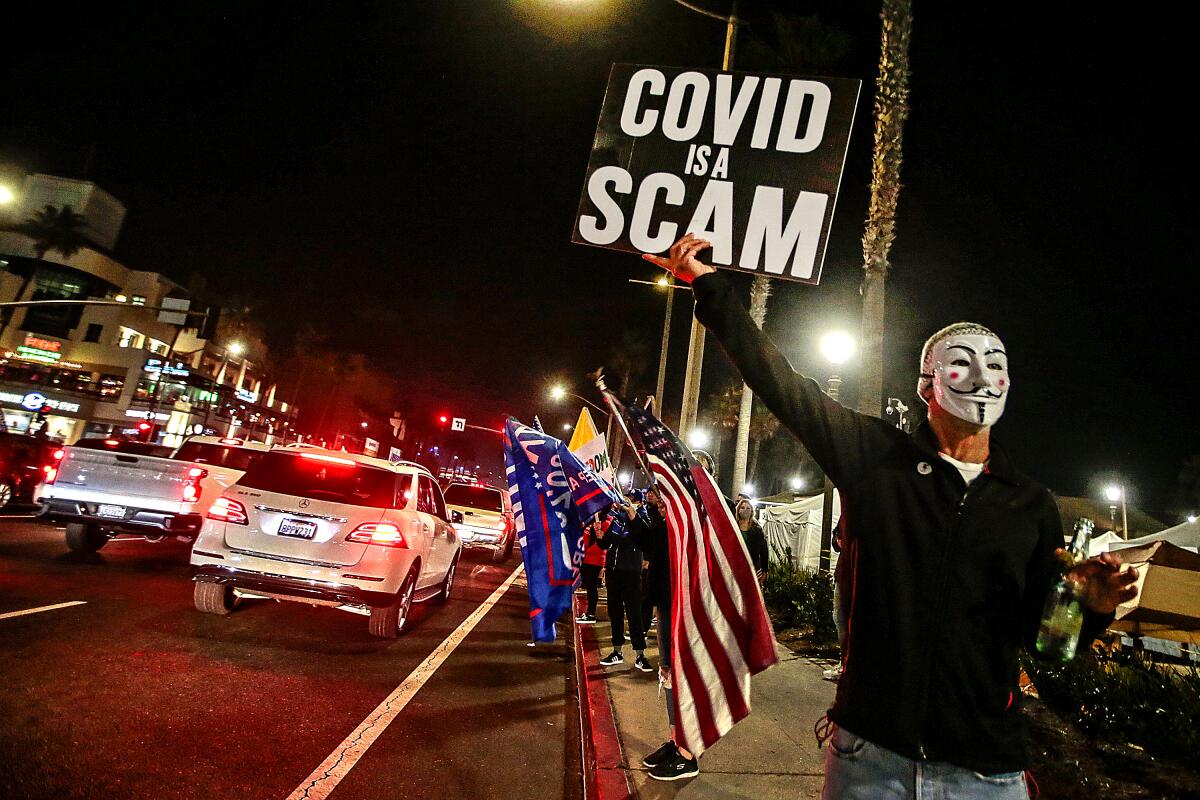
- Share via
In Orange County, no place has been more of a pandemic battleground than Huntington Beach.
Some residents joined pro-Trump, anti-mask rallies at the beach. Others were appalled.
Mayor Pro Tem Tito Ortiz refused to wear a mask at City Council meetings — until he resigned, paving the way for a Black woman to replace him and flip the council majority Democratic.
Last month’s recall election cemented the city’s reality as more ideologically mixed than its reputation for showy right-wing gestures would suggest.
The city voted in favor of recalling Democratic Gov. Gavin Newsom, but not by a landslide.
While still more conservative than the county as a whole, Huntington Beach has become increasingly ethnically and politically diverse.
The same is true of other traditionally deep-red enclaves, which are less likely than in the past to support a cause like recalling the governor largely on his pandemic performance.
For the near future, Orange County may continue to teeter on either side of the political divide, as when two U.S. House seats that flipped blue in 2018 went red again two years later.
O.C. went against the recall by 52% to 48% — a narrower margin than Newsom’s overwhelming statewide victory but still a significant result in the former conservative bastion.
Experts say the long-term trend for O.C. leans blue, with the politicization of the pandemic accelerating movement away from the Republican Party.
Battles over masking and vaccines drove some conservative, science-believing voters to support Newsom — likely some of the same voters, alienated by Donald Trump’s insult-heavy, truth-bending tactics, who helped the county break for Hillary Clinton and then Joe Biden four years later.
“There’s this loud minority that comes out and wants to portray the county as still being very conservative, with the anti-vaxxers and some of the white supremacist ideas, but that’s not the case,” said Ada Briceño, chair of the Democratic Party of Orange County.
People in Little Saigon are anxious and angry after Board of Supervisors Chairman Andrew Do was called a ‘communist parasite’ and told to ‘go back to Vietnam.’
Still, pro-recall sentiment extended beyond far-right fringes.
The county, long a well-heeled source of Republican revenue, was a notable fundraising nexus. The tremendous cost to small businesses of Newsom’s pandemic shutdowns resonated strongly.
An Irvine-based LLC called Prov. 3:9 — a reference to the Bible verse that reads “honor the Lord with your wealth”— was a top donor to the recall effort, pulling in $500,000.
The Lincoln Club of Orange County contributed nearly $300,000, and many individual donors chipped in to statewide pro-recall coffers that totaled more than $11 million.
Jim Brulte, a former state Republican Party chairman who lives in San Juan Capistrano, said O.C. is still “the mother ship” of fundraising.
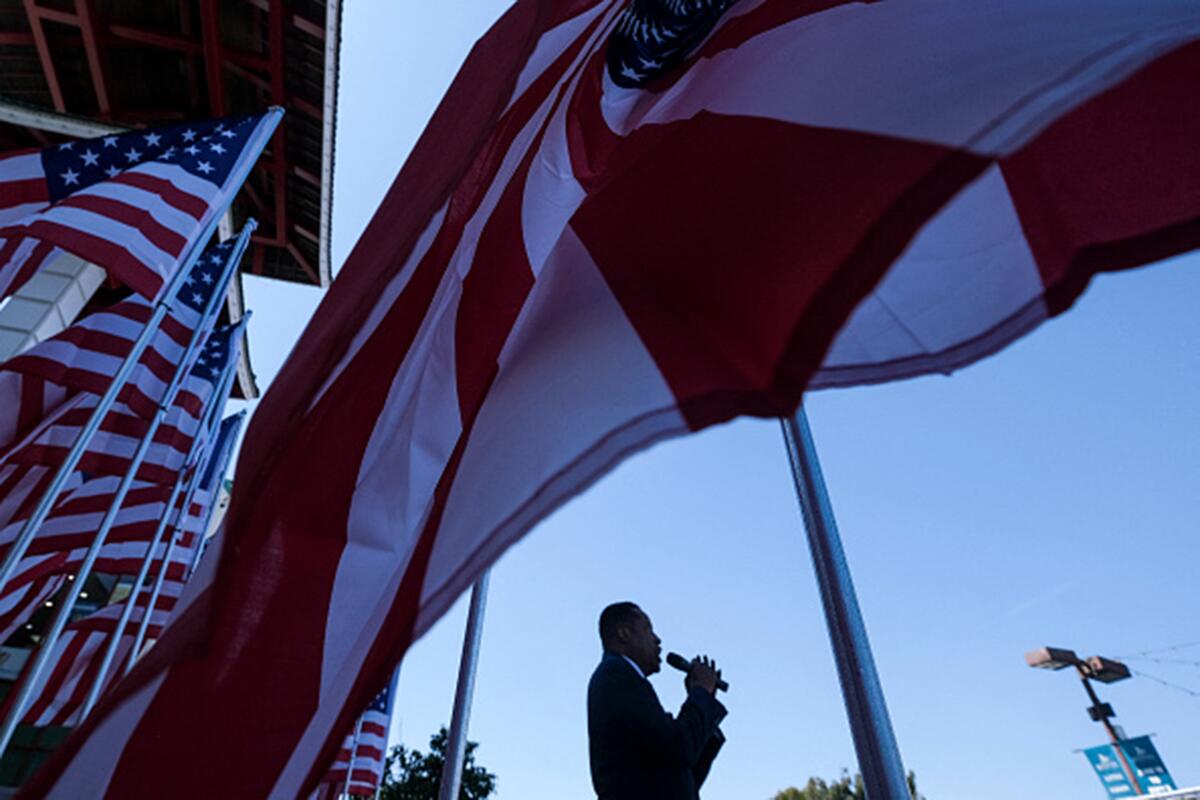
Republican candidates like Larry Elder rallied their base with campaign stops in O.C., including Little Saigon, where many Vietnamese immigrants hold strong anti-communist views that have translated into enthusiastic support for Trump.
But contrary to Orange County’s public image as the heart of COVID-19 denial, about 83% of residents believe the coronavirus is a real threat, according to a recent Chapman University poll. Nearly three-quarters said they would support a national mask mandate.
“We’re no longer your grandfather’s Orange County,” said Fred Smoller, a political science professor at Chapman University, who co-created the annual survey with colleague Michael Moodian. “The county has changed, and some people have woken up to those changes, and some people have not.”
Longtime Republican Dan Ardell didn’t think twice about casting his ballot against the recall.
He’s not happy with Newsom, whom he sees as too intertwined with unions and lacking deftness in tackling big challenges. But he couldn’t find anyone in the Republican field who excited him.
This isn’t the first time Ardell, 80, a Laguna Beach resident who worked in commercial real estate before retiring, has gone with a Democrat. He voted for Barack Obama in 2008 and against Trump both times.
The Republican Party as he knew it doesn’t exist anymore, said Ardell, who nevertheless has no plans to change his party registration.
“There’s the cult of Trump, and then there’s the others who are either unwilling or incapable or are going to get slaughtered if they pull away from the cult,” he said.
Demographic changes are driving political shifts as well, experts say. More than half of Orange County residents are Latino or Asian, with population growth among those generally left-leaning groups projected to continue.
A majority of voters in cities such as Santa Ana, Irvine and Anaheim, which have increasingly diverse populations, cast their ballots against the recall, according to maps provided by the Orange County Registrar of Voters.
In conservative strongholds like Newport Beach and San Clemente, most voters wanted to oust Newsom.
Huntington Beach also voted for the recall, but the results were closer than in many of the county’s other traditionally conservative cities, the maps indicated.
While still redder than the county as a whole, the coastal city is changing.
Countywide, registered Democrats surpassed Republicans several years ago.
In Huntington Beach, Republicans still hold a 9% advantage over Democrats, with 22% of residents not registered with a party.
The city, unlike the county, supported Trump both times. But the City Council flipped to Democrats this year and is majority female.
The city is also becoming more diverse — nearly a third of residents are Latino or Asian.
In June, Huntington Beach raised the LGBTQ rainbow flag at City Hall for Pride Month.
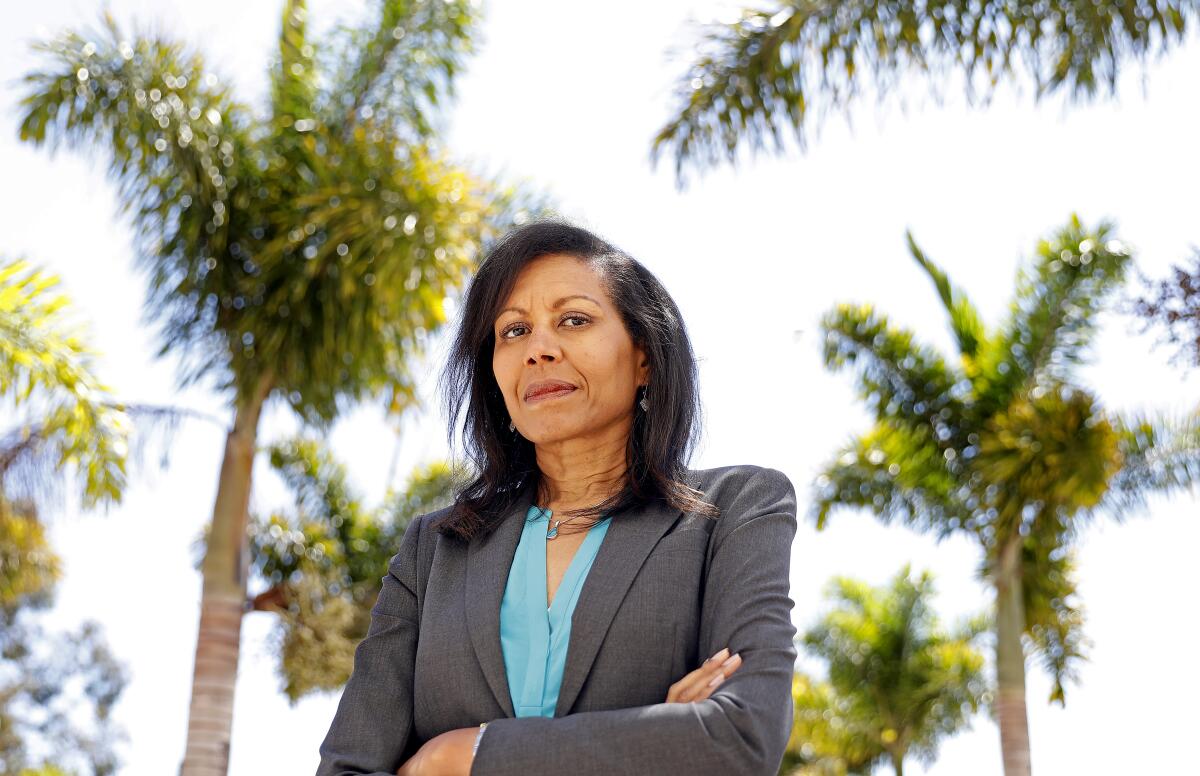
The next month, council members appointed Democrat Rhonda Bolton to replace Ortiz, a mixed martial arts fighter who made headlines by flouting indoor mask requirements.
The backlash was immediate. Some hissed and booed the appointment of the first Black council member in the city’s history.
One person shouted that she was a “transplant” — apparently because the attorney and diversity consultant moved to the city about eight years ago from Washington, D.C. Another yelled that the council was part of the “deep state.”
Speaker after speaker lobbed wild-eyed accusations at Rhonda Bolton — that a ‘globalist ideology’ facilitated her selection, that she was an ‘extremist’ who indulged in ‘racial pandering.’
Huntington Beach soon had its own recall campaign against most of the council, led by a small group angry at Bolton’s appointment.
Mayor Kim Carr, a Democrat, won a seat on the City Council in 2018 on a platform of fighting high-density development, repairing aging infrastructure and addressing an increase in homelessness.
Most residents are more interested in “bread-and-butter” issues like good schools and clean parks than their local elected officials’ party affiliation, she said.
But during her tenure, she has battled what she sees as a frustrating and enduring narrative that Huntington Beach is a breeding ground for political extremism.
“There is a small group of individuals that are fearful of change,” she said. “But when I look at the next generation of people in Huntington Beach, I see a different city emerging.”
More to Read
Sign up for Essential California
The most important California stories and recommendations in your inbox every morning.
You may occasionally receive promotional content from the Los Angeles Times.
